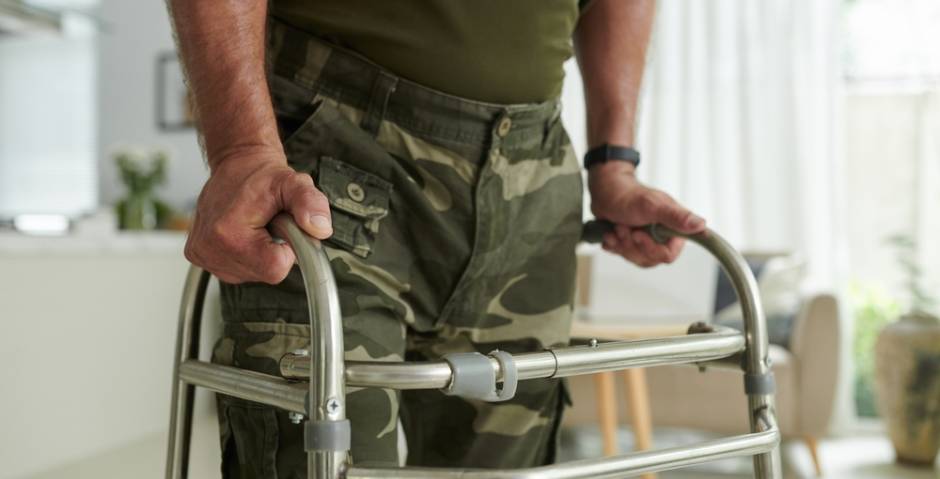When applying for VA disability benefits for PTSD, it’s crucial to understand both the process of establishing a service connection (nexus) and how the VA assigns ratings for PTSD symptoms. These ratings, which range from 10% to 100%, are designed to reflect the severity of your symptoms and their impact on your life. However, transparency about your worst symptoms is key to ensuring you receive the correct rating.
In this article, we’ll walk you through how to establish a nexus for your PTSD claim, explain how the VA assigns ratings, discuss how the VA determines effective dates, and explore common mistakes and appeal options.
Establishing a Nexus for PTSD Claims
Before the VA can assign a disability rating, you must first establish a service connection, also known as a nexus, between your PTSD and your military service. A strong nexus is essential for your condition to be considered “service-connected” by the VA, allowing you to receive compensation. There are three primary criteria you need to meet:
- A Current PTSD Diagnosis: You must have an official diagnosis of PTSD from a qualified healthcare provider, such as a psychiatrist, psychologist, or other mental health professional.
- In-Service Stressor: You need to provide evidence of a specific event or series of events that occurred during your military service and contributed to your PTSD. These stressors could include combat exposure, witnessing traumatic events, or experiencing personal trauma (such as an assault or life-threatening situation). Common examples include:
- Combat veterans who witnessed the death of fellow soldiers or were in life-threatening situations.
- Non-combat veterans who experienced severe accidents, military sexual trauma (MST), or witnessed traumatic events during training exercises.
- Medical Evidence Linking the Stressor to PTSD: The third criterion is a medical opinion, often referred to as a nexus letter, which directly links your in-service stressor to your current PTSD diagnosis. This letter should be from a medical professional who has reviewed your records and can clearly explain how your service experiences caused or contributed to your PTSD.
Failing to establish any one of these elements can lead to a denial of your claim. To strengthen your case, it’s critical to provide detailed documentation, including service records, medical reports, and, if applicable, statements from fellow service members who can corroborate the traumatic event.
PTSD Ratings: How the VA Assigns Them
Once the nexus is established, the VA will assign a rating based on the severity of your PTSD symptoms and how they affect your ability to function in everyday life. PTSD ratings range from 10% to 100%, depending on the extent of your symptoms. Understanding how the VA determines these ratings can help ensure your claim reflects the full scope of your condition.
Why Transparency Matters
One of the most important factors in receiving the correct rating is being completely transparent about your worst symptoms. Veterans sometimes minimize their experiences, which can result in a lower rating. The VA tends to average symptoms across rating levels. For example, if your symptoms fall into the 30%, 50%, and 70% ranges, the VA might assign a 50% rating. However, your rating should be based on the highest level of symptoms, not an average. If you have severe symptoms at the 70% level, your rating should reflect that level of severity.
PTSD Rating Levels
- 10% Rating: At this level, symptoms are mild and cause only occasional interference with work or social activities. Anxiety or brief periods of stress may occur, but they are not significantly disruptive.
- 30% Rating: Veterans with this rating may experience symptoms such as occasional panic attacks, mild memory loss, and moderate depression. These symptoms can impact relationships and work but allow for reasonable functioning most of the time.
- 50% Rating: This level reflects more frequent or severe symptoms such as panic attacks occurring more than once a week, difficulty maintaining personal or professional relationships, and mood disturbances that significantly disrupt daily life.
- 70% Rating: At this level, veterans may have symptoms like suicidal ideation, near-continuous panic or depression, and difficulty adapting to stressful situations. Relationships and employment become extremely challenging to maintain. Even if suicidal thoughts are “fleeting” or without intent, they still qualify you for a 70% rating.
- 100% Rating: The most severe rating, 100%, is for veterans who are completely unable to work or maintain social relationships due to the severity of their PTSD symptoms. This level is for veterans who experience total occupational and social impairment.
Effective Dates: When Benefits Start
Once the VA determines your PTSD rating, they will assign an effective date, which is the date your benefits will begin. Typically, the effective date is either the date you filed your claim or the date the VA determines your PTSD symptoms worsened—whichever is later.
For instance, if you filed your claim on January 1, 2023, and your PTSD symptoms worsened on June 1, 2023, the VA would likely assign June 1, 2023, as your effective date. This means your back pay and benefits would start from that date.
Common Mistakes with Effective Dates:
- Late Filing: Veterans often wait to file a claim, which delays their effective date. It’s important to file as soon as possible once you begin experiencing symptoms or if your symptoms worsen.
- Failure to Appeal on Time: If you disagree with your rating or effective date, you have the right to appeal, but missing the appeal deadlines can lock you into a lower rating or later effective date than you deserve.
- Inadequate Documentation: Without solid medical evidence, the VA may assign an effective date that does not reflect when your symptoms first impacted your ability to function. Be sure to include detailed medical records and supporting statements in your claim.
Common Mistakes in PTSD Claims and Appeal Options
Veterans often face obstacles in the claims process, especially when it comes to PTSD. Here are a few common mistakes veterans make and how to avoid them:
- Not Being Transparent About Symptoms: Minimizing or downplaying the impact of PTSD symptoms can result in an incorrect rating. Be open about your worst days, even if the symptoms aren’t daily occurrences.
- Inadequate Nexus Letters: Failing to provide a strong nexus letter can lead to a denial. Work with a knowledgeable mental health professional who can clearly link your PTSD to your military service.
- Overlooking Secondary Conditions: PTSD often leads to other conditions like anxiety, depression, or substance abuse. Failing to list these conditions as secondary claims can limit your overall rating.
If you believe your claim was denied unfairly or you received a lower rating than you deserve, you have options. Veterans can file an appeal through the VA’s review system, including requesting a Higher-Level Review or submitting new evidence for a Supplemental Claim. You may also request a hearing with the Board of Veterans’ Appeals.
How Disability Law Group Can Help
At Disability Law Group, we specialize in helping veterans secure the benefits they’ve earned. Our team understands the complexities of VA disability claims and specializes in advocating for veterans with PTSD. We work to ensure that your symptoms are properly documented, your nexus is clearly established, and that the VA assigns the correct rating based on the severity of your condition.
If you’re struggling to receive the correct PTSD rating, need help establishing a nexus, or want to appeal a decision, we’re here to help. Contact us today for a free consultation and let us guide you through the process of securing the benefits you deserve.










